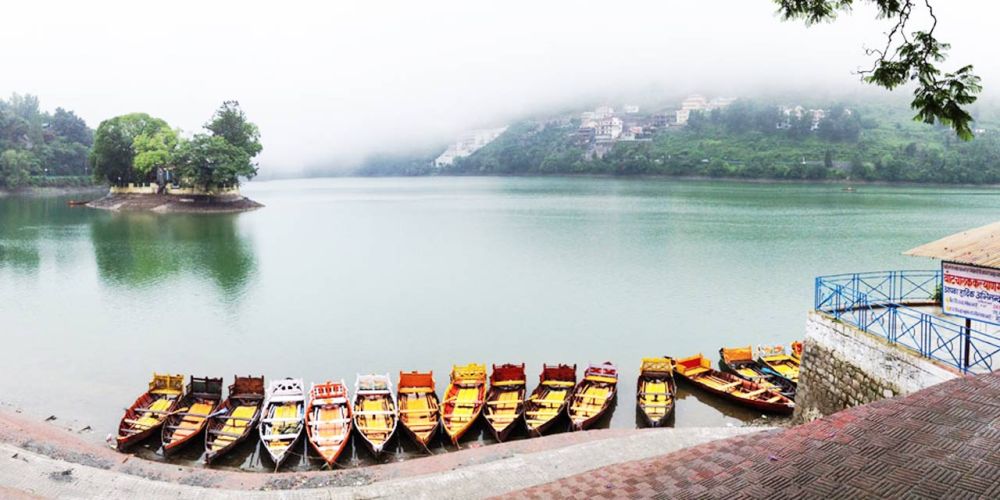

Bhimtal Lake, nestled in the Kumaon hills of Uttarakhand, India, has been a significant tourist spot dating back to the days of the British Raj. This tranquil lake is named after the mythological character Bhima from the Indian epic Mahabharata, suggesting that this region has been part of the local lore and cultural landscape for centuries. The British, entranced by its serene beauty and moderate climate, used the town as a summer retreat, setting the foundation for its tourist appeal.
The early development of tourism in Bhimtal was marked by the establishment of colonial-style guest houses and the use of the lake for fishing and boating activities. The construction of the Bhimtal Dam on the Bhabhar River in 1883 enhanced the lake's attractiveness by raising its level and creating a larger area for aquatic leisure pursuits.
Post-independence, the expansion of infrastructure, such as improved roads and expanded accommodation options, led to a gradual increase in the number of tourists visiting Bhimtal. It also benefited from the overflow of tourists from the bustling streets of Nainital, as visitors sought more serene environments.
In recent years, Bhimtal has developed into a full-fledged tourist destination catering to all kinds of travellers—from backpackers to luxury seekers. Resorts, boutique hotels, and eco-friendly homestays have sprouted up surrounding the area, providing a variety of choices for visitors. Popular attractions include the Victorian-era dam at one end of the lake and Bhimeshwar Mahadev Temple, providing a cultural touch to the visit. The Bhimtal Island Aquarium, located on a small island in the middle of the lake, has also become a sought-after destination.
The latest trend in tourism at Bhimtal has seen a pivot towards sustainable and eco-friendly practices. Recognizing the ecological value of the lake and its surroundings, efforts are being made to reduce carbon footprints and water pollution. Activities such as bird watching, mountain biking, and paragliding that have minimal environmental impact have become popular among tourists.
The evolution of tourism at Bhimtal Lake represents a blend of rich historical significance, natural beauty, and sustainable modern practices. As the flow of visitors continues to carve the economics and the ecology of the region, Bhimtal endures as a sterling model of how to balance tourist interests with that of the environment, ensuring that it remains a beloved destination for many years to come.